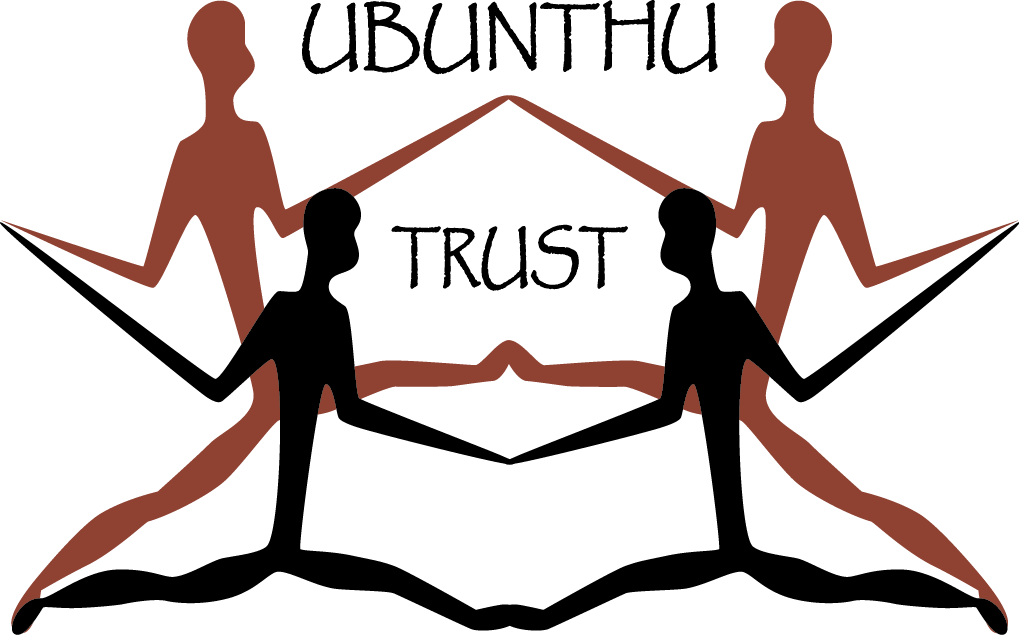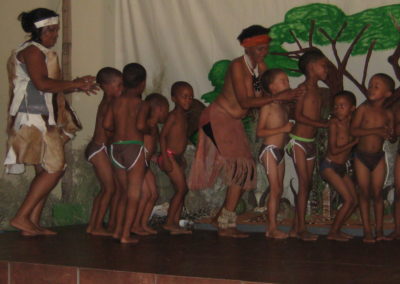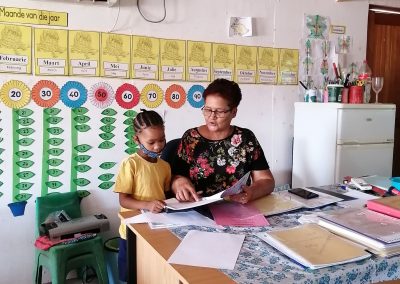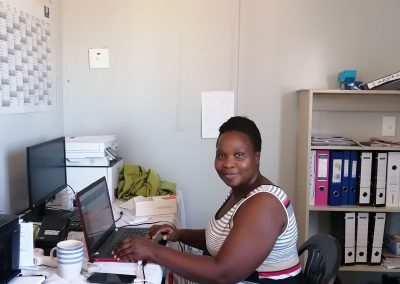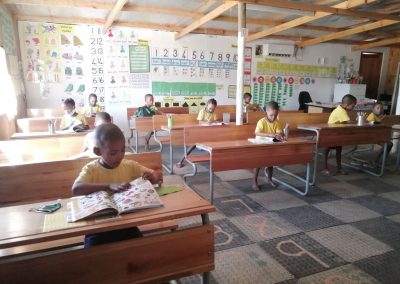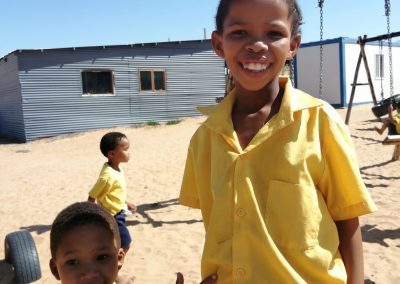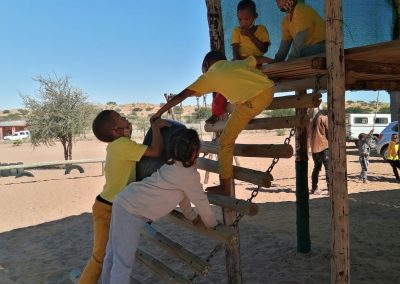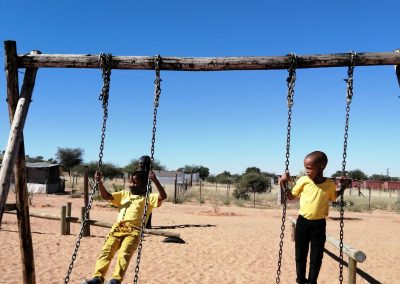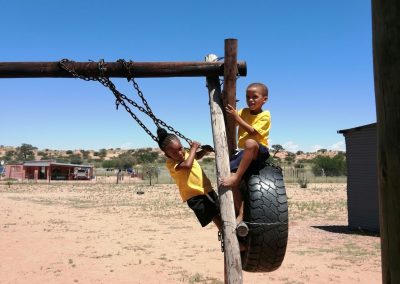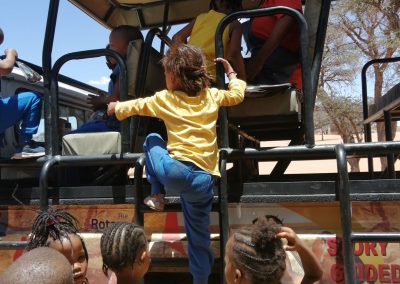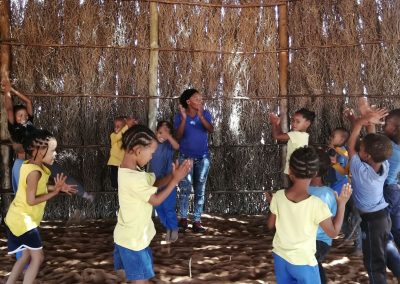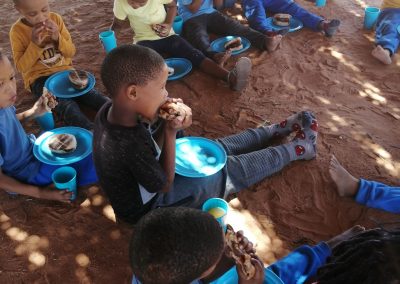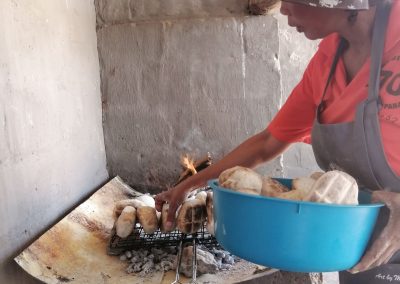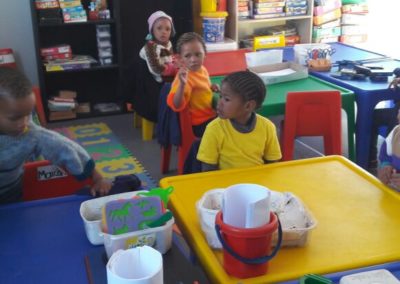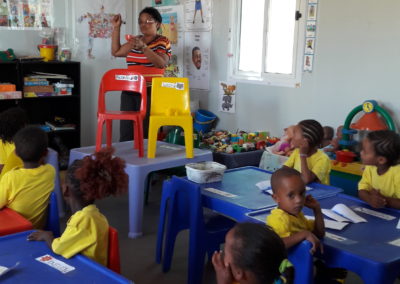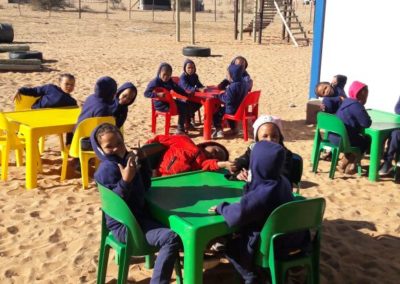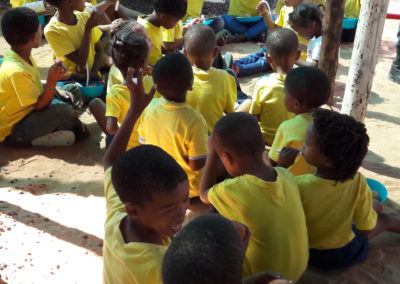Eland School
Project Mission
To provide ‡Khomani San children with culturally sensitive education which enhances and nurtures traditional values, heritage and culture interlinked with a solid mainstream Foundation Phase schooling.
The Eland School dream ignited in 2002 when Claire Barry went to live in the Kalahari and everyone she met there expressed the desire for a unique school which would combine cultural as well as modern education. At the local school, prejudice against the San peoples was still rife, and the children were bullied and ridiculed. Children also found it difficult to fit into an education system which did not cater for cultural diversity or for children who found boarding alienating and frightening.
In the years after the land claim was settled, little development occurred with growing social decay and disintegration, lack of real support from government, divisions within the now disparate community, and no significant improvement in the welfare of most community members being the order of the day. Eventually, after persistent highlighting of the ongoing problems, the South African Human Rights Commission launched an inquiry into allegations of abuse of human rights in mid 2004 and in late February of 2005 a report was released that details their findings of serious rights abuse and neglect and that makes a number of recommendations for all role-players involved (report available upon request or from the SAHRC’s website.
Although some progress, in addressing these issues, has been made in the last few years, a report by the SAHRC in 2018 addressing the human rights situation of South Africa’s indigenous communities, particularly the Khoe and San, brings attention once more, to the lack of development in the fields of language and education.
There have been numerous research projects and pilot programmes from within the San communities and networks to counter the disempowerment that communities feel in the face of the formal school system. San and Khoe communities consider inclusion in the formal education system as a moral right; it would serve as a clear signal affirming their role and value in South African society (Hays 2006).
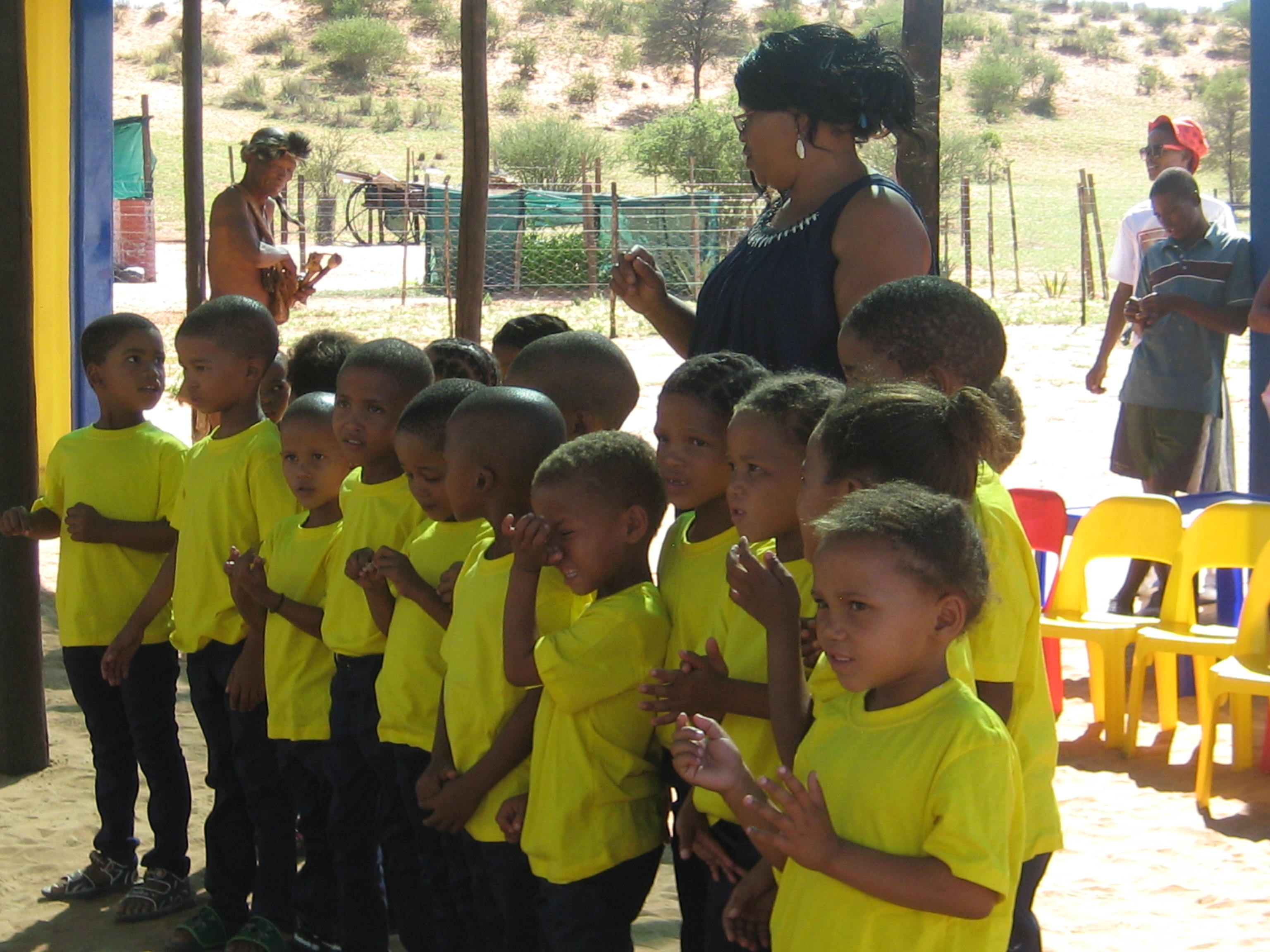
Eland School Provides
- Indigenous language classes ie N/u during school hours
- Heritage and culture
- Summer and winter school uniforms for each learner
- Two nutritionally balanced meals per day
- Books and study materials
- Fully equipped climate controlled classrooms
- Playground equipment and a shaded playground area
- Transport to and from school
- Full learner and transport insurance coverage
- Parenting Skill programme
Extra Mural Programmes
In addition to the main curriculum, the school runs a variety of extra mural activites which change according to the availability of teachers. These are some of the programmes that have been offered in the past.
Heritage
Learners are taken on excursions into the Veld where the Ancient Traditional skills of tracking and dancing are taught.
Grades 2, 3 & 4 Augmentary Programme – Mrs. C Beukes
As Eland School’s 2017 Grade 1 class had to transfer to JJ Adams, Askham. In 2018 Eland School provided them with extra classes once a week to help them adjust to bigger classroom numbers and to offer academic support.
Homework Facility and Help
Eland School is a venue where learners from Grade 3 and up, are able to do their homework twice a week, in a quiet controlled environment with special Maths and English tuition.
Eland School Bursaries
For the 2nd year Eland School has offered 3 partial and 1 full Bursary to learners Grade 10 and upwards. These learners have joined the Ubunthu Trust Keeping Kids at School (KATS) programme. The Project Manager for the Ubunthu Trust Kalahari Programme, mentors these learners.
Would You Like To Support Our Work?
Are you interested in what we do? We rely on Donor Support to fund these projects.
Please get in touch if you would like to work with us.
